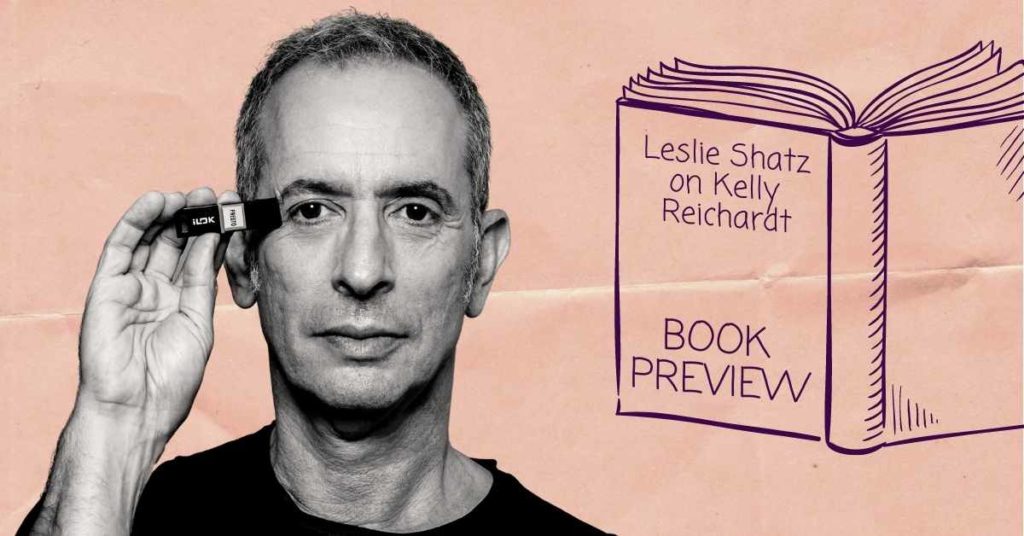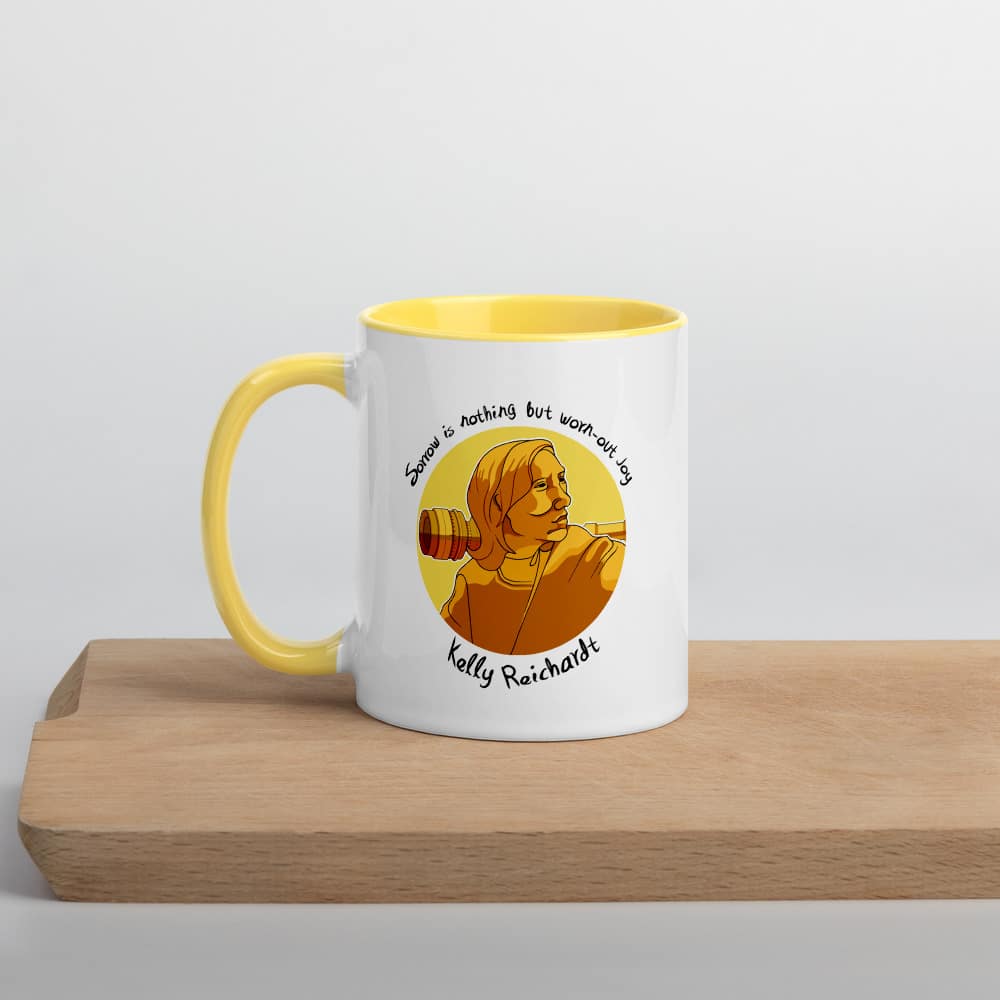Leslie Shatz chats about his collaboration with Kelly Reichardt and how they avoid making the “feel good movie of the year.” This is an excerpt of our Reichardt ebook, Roads to nowhere.

“Be prepared to talk about dogs,” Leslie Shatz emailed me back, when I asked if he’d talk to me about working with Kelly Reichardt. They both love dogs. When they did sound design for Wendy and Lucy at Shatz’s facility in Los Angeles, Kelly brought Lucy, and Shatz got to befriend her. “We are very proud of the fact that we let dogs on stages so [Kelly] brought Lucy. It’s just that whole thing of doing the sound and rolling around on the floor with the dog or going out for walks with the dog.” On Certain Women, Lucy had passed away, but Shatz had his own dog, Emily, whom he says has a “very ornery personality.” Throughout the mixing process, Kelly “would get on the floor with Emily, and little by little, by the end of the mix, Emily was up on the couch with her, and she was so delighted, and I was delighted. It was like we had finally succeeded. Forget about the sound work, we succeeded getting Emily over to Kelly’s side.“
“It just made it really feel like a humane way of doing things,” Shatz told me, which was so completely in line with how all of Reichardt’s other collaborators described working with her. On set, Reichardt cultivates a family. In post-production, she and Shatz hang out with their dogs. And like so many of Reichardt’s collaborators, Shatz is friends with Reichardt, which makes it a particularly harmonious experience.
Leslie Shatz has been the sound designer on many of the best-sounding films of the last decade, including Carol (Todd Haynes, 2015), Dark Waters (Todd Haynes, 2019), 12 Years a Slave (Steve McQueen, 2014), and most recently, The Assistant (Kitty Green, 2019). He first worked with Reichardt on Wendy and Lucy, and has worked with her on all of her features since, with the exception of Night Moves. He drew on their shared experience — and his own sound library — when working on First Cow with Reichardt. They share a love of sound and a hatred of phoniness and treacliness. When one of the music cues in the film felt too on the nose, Shatz used his shorthand with Reichardt to describe it wryly as, “feel good movie of the year,” which made her recoil and reconsider the cue. Much of the sound mixing and editing process, as Shatz described it, involved taking away scenes and sounds that didn’t quite feel real to Reichardt, that had that ‘phoniness’, which made creating a rich soundscape a complex but rewarding endeavour.
Seventh Row (7R): How did your collaboration with Kelly Reichardt begin?
Leslie Shatz: Kelly is really a friend. We’ve worked together like you would work with a friend, which is why it’s so great. I met her through Todd Haynes, who I work with a lot. [They have] kind of the same style where they’re very exacting and very precise in their vision. But the process of doing the work is just as important as the outcome.
I know Kelly’s films are idolized by people, but her method is actually very simple — which I guess is why people love the movies, because it’s just this kind of simplicity that you can put your own thoughts and feelings and ideas into. When we work together, it’s really just trying to pare things down and get to the heart of it.
On Meek’s Cutoff, which I love — I love that movie so much — she did a lot of sound work. She does a lot of sound work when she’s doing her cut. I end up having this great template to work from. She’s the editor. She teaches film, so she knows all the nuts and bolts and mechanics of how to make it work.
It always makes my job easier to work with somebody who really understands what I do. A lot of times, directors don’t really understand it. For a lot of people, sound is this magical thing that just happens, and then people say, “Oh, you’re a genius. You’re a magician.” Well, no, there’s steps that you follow, and you have a concept. A lot of times, I have the [picture editor] as the person who really understands what I’m doing. So since Kelly is a [picture editor] also, it makes it really great to be able to talk in the terms I understand and she understands. We’ve got a shorthand way of trying to get to where we’re going.

Kelly Reichardt mug: ‘Sorrow is just worn-out joy’
7R: When you come on to the project, is it after the whole picture edit is done?
Leslie Shatz: When I read [the script for] First Cow it was a really great read, and I then had this crazy idea that maybe I was going to go and do the on-set recording also. She had talked about the on-set recording on Meek’s Cutoff, and I really was jealous. She said, “We had to drive an hour every day to the set, and once you were out there, you were out there in the middle of nowhere.” All of that kind of intrigued me.
I was almost going to do the on-set recording on First Cow, but unfortunately, I guess it was too big a commitment. But she called me from the set and said [they kept hearing sounds of] airplanes, which is really a problem in making a film like that [is a period piece]. But the guys who recorded it were really good. Kelly sent me some tracks. There were airplanes, but there were always mics that we could use to get rid of the airplane.
I was involved before the shooting, and a little bit during the shooting. When she came back to New York for post, I was really lucky, because I got to be there right when they set up and looked at cuts. Kelly would invite me. I got a little bit involved with the music, because she didn’t have a composer in mind, and I gave her my thoughts on the temp music that they were using. And then suddenly, she found [William Tyler], who did an amazing, amazing job, but a lot of it was improvised. I got to participate in helping guide the direction of the improvisation and the use of the tracks. Kelly relied on my opinion and my skill in a way that I don’t always get a chance to do. It really felt great and very exciting for me. The composer was just so spot on with what he did, and I think he’s got a lot of recognition for it. I’m glad.
I know from having worked with her on all these other films that once the mix is finished, I’m going to get a call, and she’s going to be like, “Oh, we’ve got to fix something. We’ve got to change this; we’ve got to change that.” When we made the plan, I told [producer] Neil [Kopp], “Okay, I want to leave one day of mixing for weeks after we’re finished.” Just because I know this is going to happen weeks after.
But she got called off to the Cannes Film Festival to be a judge [a member of the 2019 Official Competition jury] there, so the day that we put aside on schedule was not helpful because she was away. She came back when I was already on another movie, and just as I predicted, she was like, “We’ve got to go back in there.” That’s part of her process, and it’s really good if you have the luxury to be able to say, “Let’s mix the film, and let’s wait a month, and then come back.” You just see things in a whole different light… THIS IS A PREVIEW. READ THE FULL INTERVIEW IN ROADS TO NOWHERE: KELLY REICHARDT’S BROKEN AMERICAN DREAMS.
Want to read the rest of the article?
Get the ebook.
Roads to nowhere: Kelly Reichardt’s broken American dreams will take you on a journey through Reichardt’s filmography.
It’s also the only place you can find interviews with her and all her collaborators, which together reveal Reichardt’s filmmaking process like never before.

